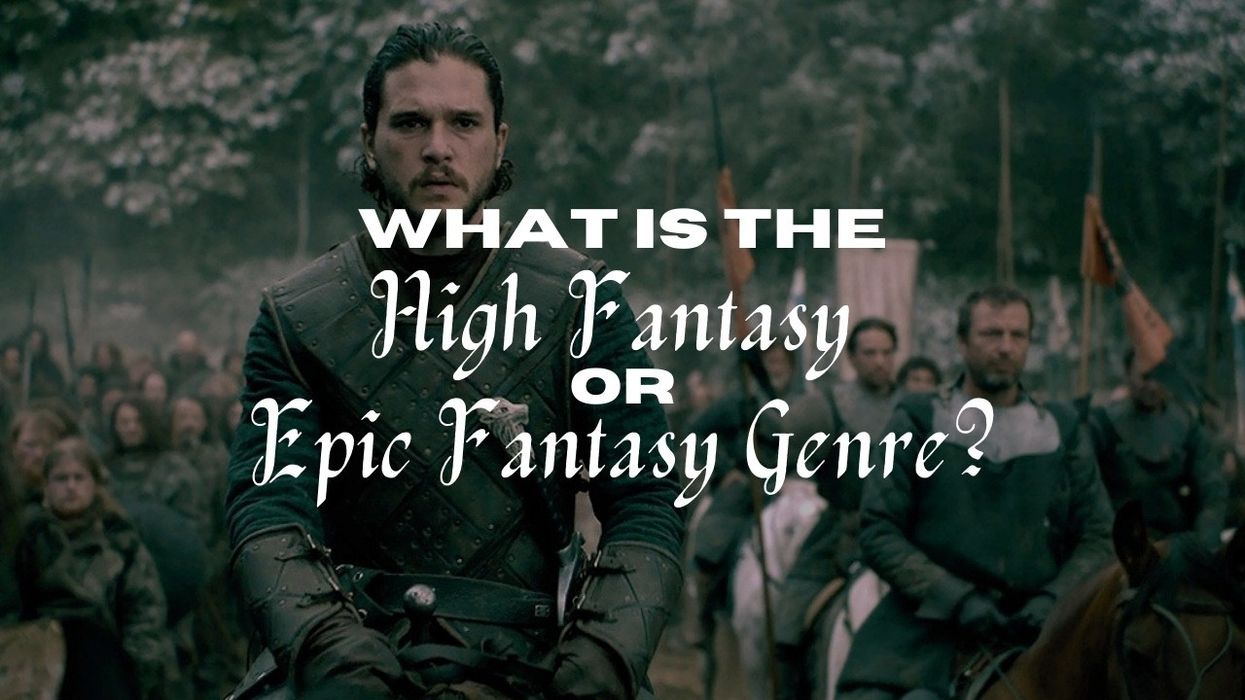What Is the High Fantasy Genre?
Are you working on a high fantasy realm for movies or TV?

Want to learn more about the fantasy genre and specifically what "high fantasy" means? Well, you've come to the right place. We love digging into specific genres here at No Film School because they help us learn the tropes and expectations audiences have for your work.
Who knew fantasy could be so complicated?
Today, we're going to extract what high fantasy really means and go through a few popular examples in film and television to help send you on your way to worldbuilding, character development and arcs, and writing.
Let's dive in.

The High Fantasy (Epic Fantasy) Definition
High fantasy, also known as epic fantasy, is the subgenre defined by the nature of the setting and the stature of the characters, theme, and/or plot. All of these must live in a world alternative to our own and are usually seen through the viewpoint of one hero, an underdog.
There are also usually characters from royalty included in these tales. It typically includes other subgenres of fantasy like heroic fantasy, mythic fantasy, dark fantasy, and wuxia.

The Origin of High Fantasy (Epic Fantasy)
According to The A to Z of Fantasy Literature, the term "high fantasy" was first used by Lloyd Alexander in a 1971 essay titled "High Fantasy and Heroic Romance." It was further developed by Kenneth J. Zahorski and Robert H. Boyer, who stated that "high fantasy consists entirely of fiction set in secondary worlds, while the 'low fantasy' with which it is immediately contrasted consists of fiction set in the primary world."
Zahorski and Boyer stated that high fantasy does not include "humorous fantasy, animal fantasy, 'myth fantasy' (of the recycled variety), fairy tales, gothic fantasy, science fantasy, and sword and sorcery."
The Tropes of High Fantasy (Epic Fantasy )
Within this genre, we're usually following one hero. They can be an orphan, a weird sibling, or another kind of an underdog who is rising up against kings, queens, or the military.
There is also a magical element often in these stories, but there doesn't have to be one. They're normally tales about this hero finding their voice, adventure, and learning to become a leader. We see them as a child but also track the maturation of this character.
Many of these are considered coming-of-age stories. No matter what, make sure your story evokes a sense of wonder, which is crucial to high fantasy as a genre.
The Themes of the High Fantasy Genre (Epic Fantasy)
The core of all these stories are tales of good versus evil.
While many deconstruct the concept of good and of evil, each of these is rooted in a character finding the truth out about the nature of each. We often see an outmatched battle, where the antagonist commands a powerful army, and the protagonist leads a much scrappier legion into battle.
The High Fantasy (Epic Fantasy) Examples
When it comes to this epic fantasy genre, there's no shortage of examples within film and television. Movies like the Lord of the Rings and Hobbit trilogy stick out. There's also something like Snow White and the Huntsman as well as the Princess Bride and even Shrek that fit into the tropes here.
Outside of the Game of Thrones series, high fantasy is in demand on TV with shows like The Witcher, His Dark Materials, Shadow and Bone, and Arcane.
Executives all over town are always looking for these massive worlds to adapt, because if they become popular they're easy to spin off into new shows and to build new worlds.
Even look at something like Star Wars, which is a mix of the science fiction genre and high fantasy, and is the most profitable intellectual property of all time.
What Is the High Fantasy Genre? (Definition and Examples)
Summing Up the High Fantasy Genre Definition and Examples
If you like traveling to faraway worlds, dealing with underdog stories, and seeing a little bit of magic, the high fantasy genre might be right for you. This storytelling pillar has helped transport imaginations for thousands of years and will be a staple of film and television for years to come.
So whether you want to learn how to write a pilot or how to write a feature film screenplay, consider diving into high fantasy and making all your dreams come true.
Let us know what you think of this genre and your favorite examples in the comments.











